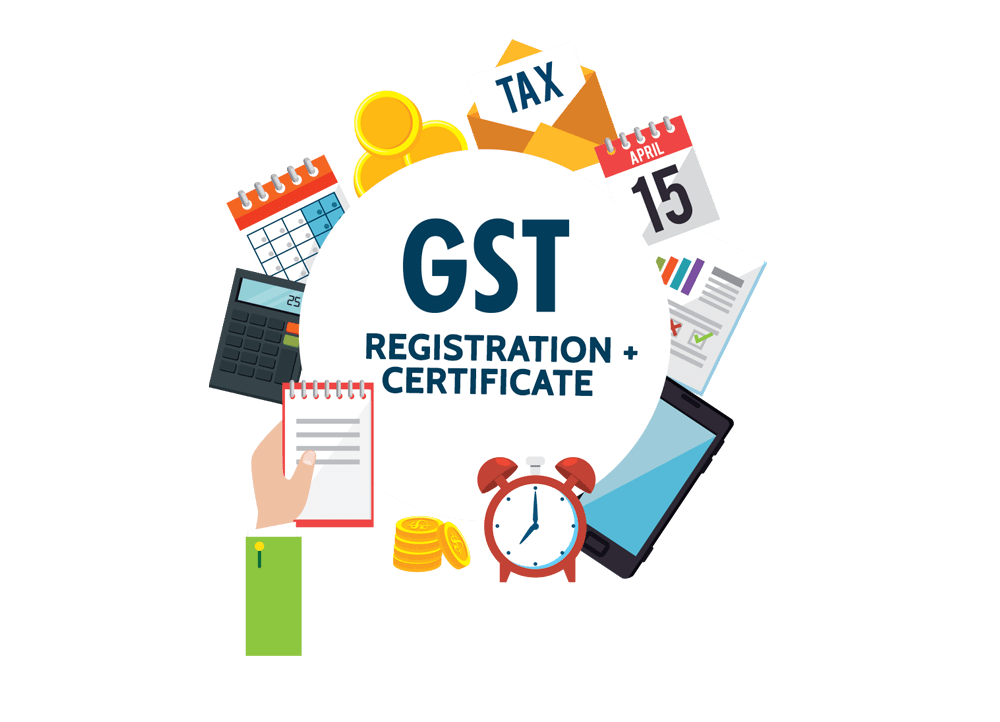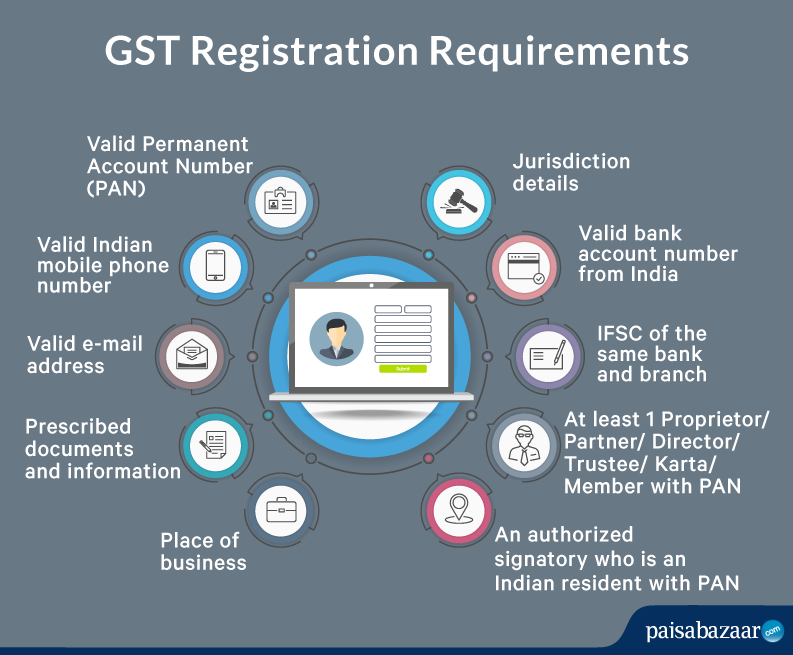Navigating the Complexities of GST Enrollment: A Comprehensive Overview for Entrepreneur
Browsing the complexities of GST enrollment can be a challenging job for many local business owner, as it includes a myriad of rules, policies, and refines that need to be followed. With the ever-evolving landscape of tax legislations, ensuring compliance and understanding the complexities of GST enrollment is essential for the smooth procedure of any type of company. From establishing qualification and gathering the required paperwork to enhancing procedures for maximum efficiency, this comprehensive overview intends to give company owner with the knowledge and tools required to browse the intricacies of GST registration effectively.
Qualification for GST Enrollment
Company owner should meet details standards to establish their qualification for GST registration. Generally, businesses with a yearly turn over going beyond a particular threshold are needed to register for Item and Provider Tax Obligation (GST) This threshold differs by country, but it is crucial for business owners to stay informed about the specific guidelines in their territory. Furthermore, organizations entailed in interstate materials, ecommerce, or the arrangement of certain specified solutions and goods may likewise be mandated to sign up for GST, no matter their turn over.
Furthermore, companies that are registered under any type of previous tax routine, such as barrel or solution tax, are commonly called for to transition to GST registration. Comprehending these standards is critical for local business owner to guarantee compliance with the law and stay clear of any penalties or legal concerns. It is advisable for entrepreneurs to speak with tax specialists or lawful experts to assess their eligibility for GST enrollment properly. By sticking to the needed requirements, companies can smoothly browse the intricacies of GST registration and operate legally within the tax obligation structure.
Records Required for Enrollment
To finish the GST registration process, organizations need to collect and send a comprehensive set of documents. The key records needed for GST enrollment normally include evidence of service registration or unification such as the Certification of Unification, partnership act, or any type of other registration certification.
In addition, particular documents related to the nature of the organization, such as a checklist of products or services provided, HSN codes for items, and cavity codes for solutions, may be needed - Why choose CFO Account & Services for GST registration in Singapore. It is vital for companies to ensure that all records sent are accurate, current, and in the recommended format to prevent any delays or issues in the GST registration process
Refine of GST Enrollment
Having constructed the requisite documents, organizations continue to launch the GST registration procedure by engaging with the online site designated for enrollment. This on the internet website is the Product and Solutions Tax Network (GSTN) portal, which functions as the main system for all GST-related activities in India. Upon accessing the website, services are required to fill out the GST enrollment form with accurate details regarding their company tasks, turn over, and various other relevant details.
Once the form is finished and sent on the site, the GSTN validates the details given by the company. The applicant might be needed to give additional details or click resources explanation if any type of discrepancies are found. Following successful confirmation, a GST enrollment certificate is released to business entity. This certification includes a special Item and Solutions Tax Obligation Identification Number (GSTIN) that is utilized for all GST-related purchases.
It is necessary for businesses to ensure that the information offered throughout the GST registration process is precise and as much as date to stay clear of any type of potential problems or hold-ups in acquiring the GST registration certification.
Comprehending GST Conformity

Services require to be mindful of the different GST compliance demands based on their turn over, nature of items or services, and the states in which they operate. It is critical to stay upgraded on any type of changes in GST laws and laws to stop any type of non-compliance problems.
Non-compliance with GST regulations can lead to significant fines, penalties, and even here are the findings legal consequences. As a result, companies have to invest time and sources in informing themselves and their team on GST compliance. Looking for professional aid from tax advisors or experts can likewise assist in browsing the complexities of GST compliance and making sure that companies operate within the legal structure.

Tips for Optimizing Service Procedures
For enhanced efficiency and productivity in company operations, calculated planning and streamlined procedures are vital parts. One suggestion for maximizing company operations is to utilize technology properly.
Another essential aspect is focusing on tasks based upon their importance and deadlines. By producing a clear power structure of tasks and setting reasonable timelines, services can guarantee that crucial tasks are completed on schedule. Moreover, promoting a society of open communication and collaboration among employee can bring about boosted efficiency and innovation.

Verdict
To conclude, navigating the intricacies of GST enrollment requires a clear understanding of qualification criteria, essential documents, registration procedures, and compliance needs. By adhering to these standards and enhancing service procedures, local business owner can make certain smooth procedures and conformity with the GST laws. It is vital for businesses to remain informed and upgraded on GST laws to prevent any type of charges or legal issues.
The key documents required for GST enrollment commonly consist of evidence of service enrollment or unification such as the Certification of Unification, collaboration action, or any kind of other registration certificate.Having actually constructed the requisite documentation, businesses continue to initiate the GST registration procedure by involving with the read this post here on the internet site marked for registration. Upon accessing the portal, businesses are needed to load out the GST enrollment form with precise details concerning their business tasks, turnover, and various other pertinent information.
In order to preserve adherence to GST guidelines and prevent penalties, companies have to focus on comprehending GST conformity. By sticking to these guidelines and enhancing business operations, service proprietors can make sure smooth procedures and conformity with the GST policies.